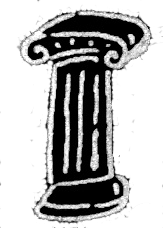How to Sleep
 The quest for a good night’s sleep has challenged humanity from before Hippocrates to today’s big pharma. Almost everyone with public access has weighed in.There are ten Ted talks about sleep, among them:Russel Foster on the science of sleep;Arianna Huffington on how a good night's sleep can make one happier and more successful;Jeff Iliff on how sleep helps brain metabolism.Just recently the New York Times reviewed two new books about sleep and ran an article on why sleep is important.Meanwhile, in our various abodes, as we dim the lights and tune down noise, we all more-or-less struggle with trying to get at least a decent night's sleep.Down the millennia the appurtenances we employ to facilitate sleep have little changed: a bed (of leaves, straw, coil-sprung or latex mattresses, bed linens of some sort, pillows, and a quiet, safe sleep enclosure. A kind of womb for sleeping.Sleep exposes us to the whims of our surroundings—animal, vegetable or mineral. But what is sleep?The ancient Greeks viewed sleep as a tool wielded by the god of sleep, Hypnos. But it wasn't until the early twentieth century that the physiology of sleep came under scientific scrutiny. After studying the results of sleep deprivation Nathaniel Kleitman and his student Eugene Aserinsky discovered rapid eye movement (REM).In the 1950s William Dement related REM to dreaming and produced evidence that sleep and REM were cyclical in humans and other animals as well.Soon, sleep apnea was discovered and became perhaps the most common among 200 identified sleep disorders. This led to the new discipline of sleep medicine, an ever-ongoing study of sleep from electro-physiologic, pharmacologic, and biochemical perspectives..
The quest for a good night’s sleep has challenged humanity from before Hippocrates to today’s big pharma. Almost everyone with public access has weighed in.There are ten Ted talks about sleep, among them:Russel Foster on the science of sleep;Arianna Huffington on how a good night's sleep can make one happier and more successful;Jeff Iliff on how sleep helps brain metabolism.Just recently the New York Times reviewed two new books about sleep and ran an article on why sleep is important.Meanwhile, in our various abodes, as we dim the lights and tune down noise, we all more-or-less struggle with trying to get at least a decent night's sleep.Down the millennia the appurtenances we employ to facilitate sleep have little changed: a bed (of leaves, straw, coil-sprung or latex mattresses, bed linens of some sort, pillows, and a quiet, safe sleep enclosure. A kind of womb for sleeping.Sleep exposes us to the whims of our surroundings—animal, vegetable or mineral. But what is sleep?The ancient Greeks viewed sleep as a tool wielded by the god of sleep, Hypnos. But it wasn't until the early twentieth century that the physiology of sleep came under scientific scrutiny. After studying the results of sleep deprivation Nathaniel Kleitman and his student Eugene Aserinsky discovered rapid eye movement (REM).In the 1950s William Dement related REM to dreaming and produced evidence that sleep and REM were cyclical in humans and other animals as well.Soon, sleep apnea was discovered and became perhaps the most common among 200 identified sleep disorders. This led to the new discipline of sleep medicine, an ever-ongoing study of sleep from electro-physiologic, pharmacologic, and biochemical perspectives..
Ultimately, as the ancient Greeks well explored it, sleep is an experiential mystery.
.The "bible" of psychiatric disorders, the DSM 5, now includes a category of sleep-wake disorders. Medical and psychiatric conditions, including recreational drugs and alcohol, can result in disturbed sleep. Worry and stress, circumstances that put the brain into an alert state, can disrupt sleep.Experts in sleep medicine propose various recommendations to promote adequate, regular sleep• Rigorous routine of same time for going to sleep and for waking• Avoid daytime naps• Avoid screen time in bed• Avoid caffeine, nicotine or alcohol at late hours• Regular exercise but more than 3-4 hours before bedtime• No late heavy meals, but a light snack could aid sleep• Make bedroom dark, quiet, and with a comfortable temperature• Use a relaxing routine before bed — read, listen to music• Restrict use of bed for only sleep or sexPrimary insomnia, unlike secondary insomnia, is not caused by medical or psychiatric conditions or environmental causes (such as drug abuse, medication, shift-work).When all else fails, big pharma is there to provide medications that can address both forms of insomnia. There are, of course, over-the-counter, homeopathic and other forms of sleep "aids"(including acupuncture etc.) that are widely used. Prescriptive medications—and that would include the CPAP devices that ensure brain oxygenation during apnea episodes)— have varying uses.Two types of sleep problems drive the prescription of sleep medication: whether the problem is initiating sleep or maintaining it. Short-acting drugs such as zolpidem are aimed at helping initiate sleep. Longer-acting medications such as eszopiclone aim to help maintain sleep. Suvorexant, one of the newest sleep medications, works not as a hypnotic but ss a blocker of orexin receptors to silence the wakefulness center in the brain. The list of sleep medications is long. Anti-anxiety drugs, chiefly the benzodiazepines, are often prescribed when anxiety seems to interfere with sleep.Ultimately, as the ancient Greeks well explored it, sleep is an experiential mystery. We may know a lot about the physiological aspects of sleep, but the sleeper, in that insensate state, knows nothing. Dreams may appear but the totality of the experience, the sleep adventure, glides by us with no clue.We wake feeling as though we have been to a rehearsal but have no recollection, no memory at all, of what those hours were about. The agenda is always empty. No program notes exist. It's like dropping off for a sudden nod of sleep in the middle of an opera. We have no idea what we missed. We only know that something was missed because we had the unmistakable sensation of waking.Sleep stays with us, in all its mutations, throughout our life.Until we reach the final sleep. That last rehearsal.
